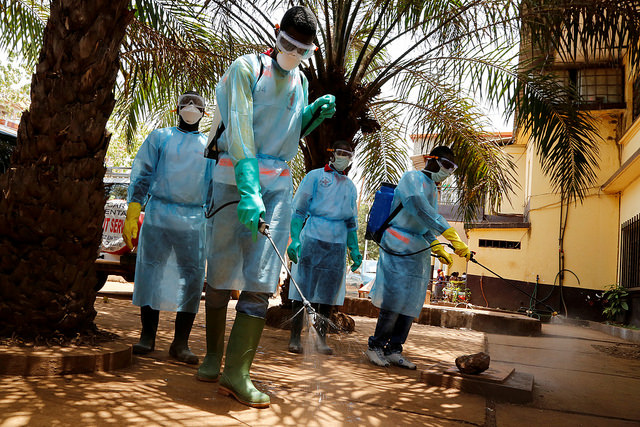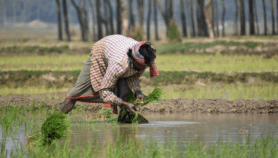By: Gilbert Felongco
Send to a friend
The details you provide on this page will not be used to send unsolicited email, and will not be sold to a 3rd party. See privacy policy.
[MANILA] As the world struggles against Ebola, the Western Pacific recently unveiled action plans to protect its 1.8 billion people from the deadly disease and other health challenges.
During the sixty-fifth session of the WHO Western Pacific Regional Committee held in Manila on 15-17 October, delegates from 37 countries and states affirmed resolutions to address existing threats to health in the region while also drawing up action plans for public emergencies and disasters.
“I have never seen an infectious disease contribute so strongly to potential state failure,” said Margaret Chan, WHO director-general, in a message delivered for her by the executive director of her office, Ian Smith.
Chan noted that the outbreak shows that some key arguments that the WHO has been making for decades are now falling on receptive ears. “First, the outbreak spotlights the dangers of the world’s growing social and economic inequalities. Second, rumours and panic are spreading faster than the virus, and this costs money,” she said.
Addressing the opening of the session, Shin Young-soo, WHO Western Pacific regional director, noted that results from a recent survey of the region’s members showed good preparedness to detect and respond to Ebola, and a regional emergency operations centre is on high alert.
Chin-Kei Lee, WHO Western Pacific coordinator on emerging disease surveillance and response, added that current potential treatments for Ebola showed positive signs.
“For the first time, a range of potential treatments and vaccines could become potent assets in the coming months, supporting our efforts to control Ebola virus disease,” he said, pointing out that these potential cures had proven to be “very effective in primates”, mostly rhesus macaques.
The meeting in Manila also endorsed strong action plans to address vaccine-preventable diseases, antimicrobial resistance, tobacco control, the heavy burden of mental disorders, and disasters and emergencies.
The meeting drew up mechanisms to implement the regional framework for the global vaccine action plan, an international effort endorsed by the World Health Assembly way back in May 2012 to prevent the spread of communicable diseases through immunisation.
“We have made solid progress in the prevention and control of communicable diseases. The Western Pacific region has maintained its polio-free status. We are doing our part to contribute to the global polio endgame strategy and a polio-free world,” said Shin.
Aside from polio, Shin said the region has also made gains in defeating measles and maternal and neonatal tetanus, and is accelerating control of hepatitis B and improving immunisation coverage.
To address antimicrobial resistance, a major public health concern in the Western Pacific, delegates approved a six-point regional programme of action that emphasises disease surveillance and promotion of rational use of medicines, including those for livestock use.
“Antimicrobial resistance occurs when different microorganisms such as bacteria, viruses, fungi and parasites require change in medications for treatment,” Klara Tisocki, the WHO Western Pacific coordinator for essential medicines and health technologies, tells SciDev.Net.
Tisocki pointed to the case of multidrug-resistant TB: “It is largely under-reported, which compromises control efforts.”
During the meeting, the body also approved the Western Pacific Regional Framework for Action for Disaster Risk Management for Health.
This particular measure outlines key strategies and activities to guide ministries of health in contributing to health and human security.
The WHO likewise aired its support to member states in moves to provide universal health coverage.
This article has been produced by SciDev.Net's South-East Asia & Pacific desk.














